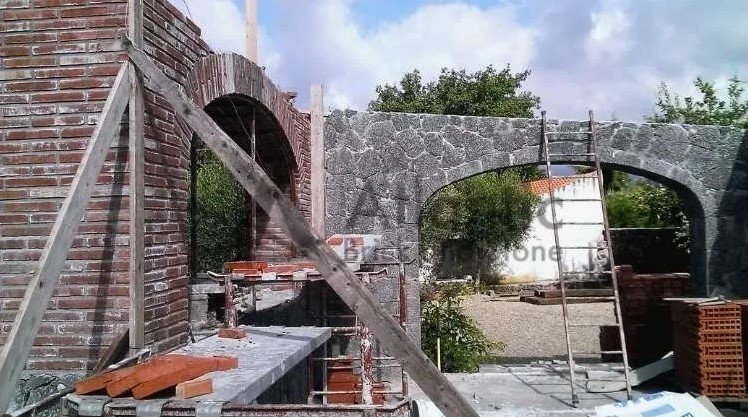Have you been considering a masonry project like building a new concrete walkway or renovating the exterior of your commercial building but hesitate because you are unsure of how much it will really cost? You are definitely not alone in wanting to understand all the variables that can impact masonry budgets before diving into a project.
As top rated masonry contractor here in Fredericton, we have worked on hundreds of jobs both residential and commercial over the years and have seen firsthand how different factors influence costs. In this guide, we will break down the essential things you need to know so you can feel confident making decisions about your masonry needs.

One thing that will majorly affect your budget is deciding which masonry materials to use in your project. The choices available can vary in terms of function, quality, durability, and price. Here are a few common options to consider in Fredericton:
There are various types of brick from different manufacturers that can impact price. Face brick, which is highly decorative, can cost more than common brick that’s usually hidden. Repurposed or salvaged brick is often cheaper than new but requires lots of prep work to clean or reuse.
Costs get more variable when using natural stone versus more affordable manufactured stone products. Dimensional stone like granite needs highly skilled masons and can be more expensive than manufactured or resin-based synthetic stone, which still looks luxurious. The location of the quarry source also influences relative pricing of natural stone options.
Concrete masonry units are very cost-effective for foundations and load-bearing walls. Their strength, variety of finishes, and easy assembly make concrete blocks a practical choice for many projects. Concrete blocks tend to be more affordable than brick or natural stone options due to their lower material and installation costs.
Commercial masonry projects usually have more stringent building codes and liability issues that increase material requirements and insurance overhead. Scale also impacts efficiency – larger projects see reduced per unit costs.
A new masonry structure versus renovating an existing one will carry different price tags. And repairs requiring selective demolition are less complex than ground-up construction.
Intricate designs, curved walls, and customized artistic elements all require more time, resources, and specialized skills – translating to higher costs compared to simple rectangular forms.
Pay rates for masons naturally vary between locations, with union zones usually at a premium. Research customary hourly rates for your area.
Apprentices and general laborers charge less than highly trained journeymen or specialty artisans. Complex elements may require more seasoned skills.
Projects done out of sequence or weather delays prolong labor costs. Tight schedules may warrant overtime pay or additional crews to finish quicker.
Rural projects face longer equipment/material transport times versus urban jobs near suppliers. Remote settings also reduce competition among subcontractors.
Challenging soil, buried debris removal, extensive demolition work, or steep terrain preparation require extra resources compared to flat, clear land.
Scaffolding, lifts, and more laborers are needed on multilevel projects or those wrapped around hard-to-reach areas due to safety regulations.
Certain times of the year like winter bring colder temperatures that can slow drying and curing times for masonry materials like concrete and mortar. This may require extending timelines to avoid unfinished work being damaged by weather.
If a project time frame overlaps with wet seasons, additional expenses will be needed for tarps, temporary walls, and heating equipment to allow work to continue as scheduled while protecting exposed materials from precipitation damage.
The farther a construction site is located from suppliers, the higher transportation fees will be to deliver necessary bricks, blocks, stone, and other goods.
Space must be allocated near the work area for safely stockpiling incoming deliveries. Personnel hours are also required for offloading, inspecting for defects, and organizing inventory by type and size.
During construction you should also be ready for unforeseen site conditions like buried foundations or unstable soil discovered during excavation, changes in material prices due to supply chain disruptions, and cost overruns due to scope creep or unplanned challenges that may require a contingency budget.
When it’s time to bring in professionals, selecting the right contractor is important for staying on track. In Fredericton, Atlantic Brick and Stone is a great option to consider. As the most experienced masonry company around, we know local codes, have strong supplier relationships, and can provide an accurate cost estimate because we have completed countless masonry projects. Contact us for your specific project estimate – we will ensure you get a high-quality finished product without any costly surprises.
Properly understanding masonry work costs requires investigating:
Armed with this knowledge, you will feel confident having productive conversations with contractors and making budgeting decisions for your masonry needs.
GET STARTED
Create stunning structures with our residential and commercial masonry services in Fredericton. From meticulous designs to the completed build, our process is professional and rewarding, and we can’t wait to build your dream with you.
Atlantic Brick and Stone, one of the best masonry contractors in Fredericton, NB
Contact
8 Muskie Street, Lower Kingsclear, New Brunswick E3E 0E7, Canada